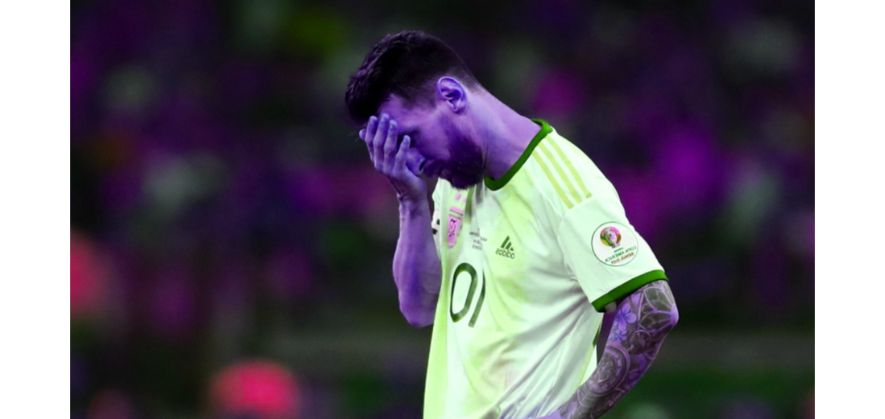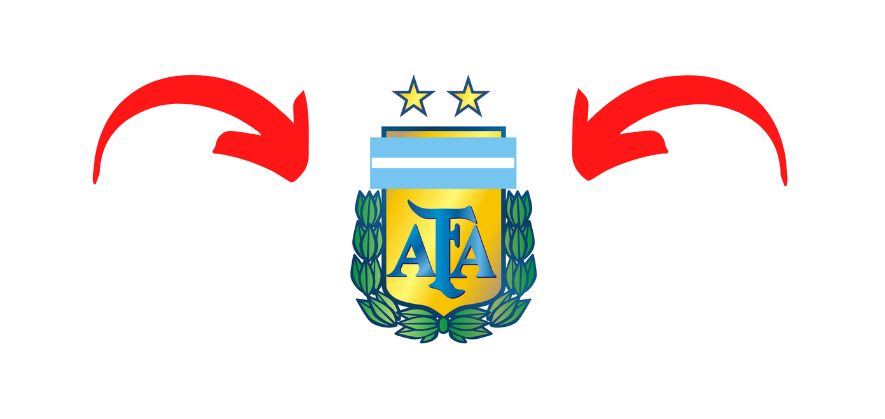A couple of years ago one of soccer’s greatest ever players – Lionel Messi – announced his decision to retire from representing his national team Argentina in friendlies and competitive fixtures.
It was a declaration that sent shockwaves throughout social media circles, as fans couldn’t believe that the world’s greatest player had decided to call it quits whilst still in his prime.
You see, soccer players tend to have long careers that can see them playing at the highest level well into their 30s, so it was a massive surprise when Messi chose to hang up his international boots.
But one particular question about this topic needs to be answered.
And that’s why Messi decided to retire.
Well, the answer is pretty much two-fold.
Lionel Messi decided to retire from the Argentinian national team because of the repeated hurt that came with being on the losing side in competitive tournaments. He and his team mates were unable to win an international title for their country, losing a fourth major final in a nine-year timespan.
Read on to get the full picture.
What was the reason for Messi’s international retirement?
Without a doubt it wasn’t easy for Messi to reach this conclusion, which certainly brought Argentinian fans to their knees in despair.
But there were quite a few factors that led the former Barcelona player to making this choice.
The first of which was…
1. Repeated failure in tournament finals

For a player of Messi’s stature, defeat at the final hurdle isn’t easy to handle.
This is because Lionel Messi is used to winning trophies at club level, having picked up more than 30 titles for Barcelona during his time in Spain.
You can even check this out for yourself, as we have an article dedicated to detailing how many trophies Messi has won through the entirety of his professional career.
Because players take so much pride in representing their nation, they want to do their best to succeed with their national teams.
After missing a penalty in a shootout against Chile in the Copa America final, Messi was simply defeated and had no more willpower to carry on playing for Argentina.
Here’s what he had to say to this effect:
“For me the national team is over. I’ve done all I can, it hurts not to be a champion. It’s been four finals, I tried. It was the thing I wanted the most, but I couldn’t get it, so I think it’s over. I think this is best for everyone. First of all for me, and then for everyone. I think there’s a lot of people who want this, who obviously are not satisfied, as we are not satisfied reaching a final and not winning it. It’s very hard, but the decision is taken. Now I will not try more and there will be no going back.”
Source – BBC Sport
At the time, he only had an Olympic gold medal with Argentina to his name.
He suffered two previous defeats at the hands of Chile in the Copa America final, as well as being on the losing side in the FIFA World Cup final in 2014, where they lost by a solitary goal to Germany.
That failure is bound to take a toll on a professional, even for someone as resilient as Messi.
2. Intense criticism from Argentine media

Another thing that contributed to Messi’s retirement decision was the overwhelming criticism from the Argentinian media outlets, who constantly lambasted his performances for the national team.
Because Messi was so good for Barcelona, many people in Argentina wondered why he couldn’t replicate his ability and talent for his national team.
In retrospect, a solid argument could be made that changes in the tactical system along with tactical ineptitude from previous managers inhibited Messi’s potential when playing for his country.
More so, the fact that he had to work with team mates who were not as skilled as his colleagues at Barcelona probably contributed to his subpar displays at international level.
But think about it this way.
How would you feel if the media in your own country weren’t supportive of you even when you played badly during an international game?
If they continuously hounded you for your effort even though you were trying your best?
Even the most composed players would feel aggrieved and eventually break.
This is what happened in Messi’s case.
When did Messi decide to retire from Argentina?
Lionel Messi decided to retire from international soccer on the 27th of June 2016, in the aftermath of Argentina’s defeat in the Copa America Centenario final to rivals Chile, who won on penalties.
The defeat was simply too much to bear for the Argentinian forward, who called time on his international career to the surprise of fans all around the world.
However, Messi made his international comeback about two months later, stating that he loved the Argentina national team too much and that he wanted to help where he could.
How many times has Messi retired from international soccer?
Lionel Messi has only retired once from international soccer, as the article has just discussed.
Although, this number will be set to change when the Argentinian maestro finally decides to hang up his cleats for both club and country.
His team are gearing up for the 2022 FIFA World Cup in Qatar later this year, and many expect him to retire from international play after this tournament concludes.
Hopefully he’ll able to leave with the trophy in hand!
Final thoughts
So, that’s that!
This article has spoken at length about why Lionel Messi decided to retire from international soccer with Argentina.
If you’ve found this article interesting, well you’re in for a treat as we have more Messi-related content that you’d probably enjoy reading.
Check out the following posts:
- What the term “Ankara Messi” means;
- Lionel Messi’s shirt holding celebration explained;
- Whether Messi can perform a knuckleball shot;
- Why Lionel Messi has the nickname “La Pulga”;
- Why Messi follows Chelsea on social media; and
- How many red cards Messi has picked up in his professional career
If you enjoy the content that I create and would like to buy me a coffee, then I’d really appreciate it!
Any money that I earn through this donation will be re-invested into more content for this website.
Additionally, by sending in a donation you’ll also receive a copy of my recently released 190+ page eBook on Soccer Ball Care, as well as be subscribed to our mailing list where you’ll be regularly informed on the latest developments concerning the Soccer Whizz blog.
- Future Icons: Europe’s Emerging Midfield Maestros Set for Glory - December 4, 2023
- Kickstarting a Revolution: How Soccer Transformed the United States Over the Last Four Years - October 7, 2023
- 4-1-4-1 Soccer Formation [Analysis] - September 23, 2023

